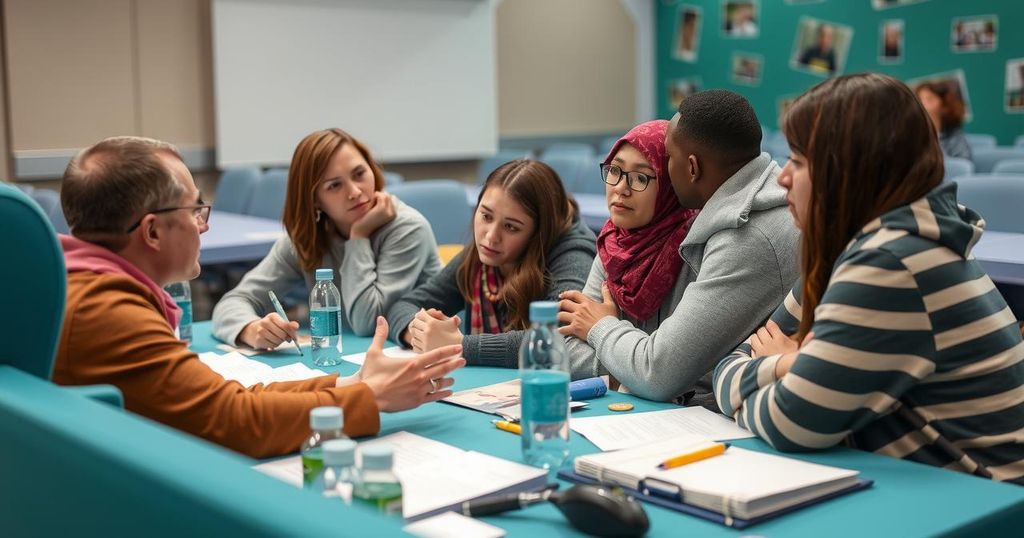Lifestyle
ASIA, BISHKEK, BISHKEK CITY HALL, COMMUNICATION, COMMUNITY ENGAGEMENT, EUPRESS, EUROPE, EUROPE COMMUNICATIONS MANAGER, EUROPE PRESS OFFICE, FOOD AND AGRICULTURE ORGANIZATION OF THE UNITED NATIONS, HEALTH, KY, KYRGYZ MINISTRY OF HEALTH, KYRGYZSTAN, LIV, LIVIU VEDRASCO, MINISTRY OF HEALTH, ONE HEALTH, RESEARCH, ROY WADI, ROY WADIA, SCIENCE, SUSTAINABILITY, WHO, WHO COUNTRY OFFICE
David O'Sullivan
0 Comments
Empowering Young Minds: Preventing Antimicrobial Resistance in Kyrgyzstan
To commemorate World Antimicrobial Awareness Week, the WHO Country Office in Kyrgyzstan hosted an educational event for fifth-grade students addressing antimicrobial resistance (AMR). Various health organizations presented information and practical advice for preventing AMR, emphasizing responsible behavior and the interconnected nature of human, animal, and environmental health.
In honor of World Antimicrobial Awareness Week, the WHO Country Office in Kyrgyzstan organized an educational initiative aimed at engaging fifth-grade students in discussions about antimicrobial resistance (AMR). The event featured contributions from various organizations, including the WHO, the Food and Agriculture Organization of the United Nations, and representatives from the Kyrgyz Ministry of Health and Bishkek City Hall, focusing on AMR as a crucial global health concern.
The interactive session aimed to equip students with essential knowledge and skills to combat AMR in their daily lives. Participants learned critical practices such as regular handwashing to prevent infections, the importance of adhering to antibiotic prescriptions, and raising awareness regarding the responsible use of medicines.
Experts also introduced attendees to the concept of One Health, emphasizing the interconnectedness of human, animal, and environmental health. “This event was a wonderful opportunity to empower children to understand their role in combating AMR,” remarked Dr. Liviu Vedrasco, WHO Representative in Kyrgyzstan.
The event underscored the notion that individuals of all ages can play a significant role in safeguarding health systems against AMR. Engaging these young changemakers fosters a generation committed to preserving the efficacy of antibiotics and other essential medicines for future use.
The initiative to educate young students in Kyrgyzstan on antimicrobial resistance is part of a larger global movement to raise awareness about AMR, which poses a serious threat to public health worldwide. AMR occurs when bacteria evolve and become resistant to the effects of medications, rendering common infections harder to treat. Educating children about responsible medication use is essential for instilling lifelong habits that can help mitigate this impending health crisis. The One Health approach highlights the need to consider the interrelations between human, animal, and environmental health in combating AMR.
In conclusion, the WHO Country Office in Kyrgyzstan has successfully engaged young students in meaningful discourse about antimicrobial resistance through an educational event. By empowering the next generation with essential knowledge about AMR and encouraging responsible practices, the initiative aims to instill a sense of responsibility towards public health. This approach is vital in ensuring the effectiveness of antibiotics and safeguarding global health systems for years to come.
Original Source: www.who.int




Post Comment